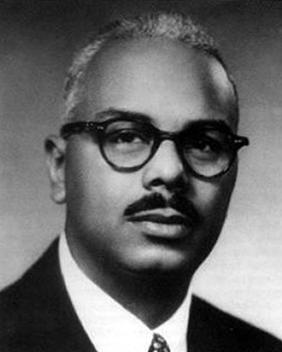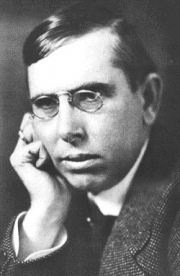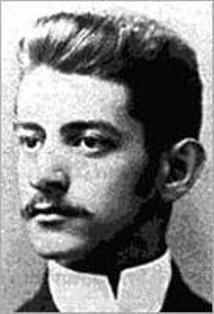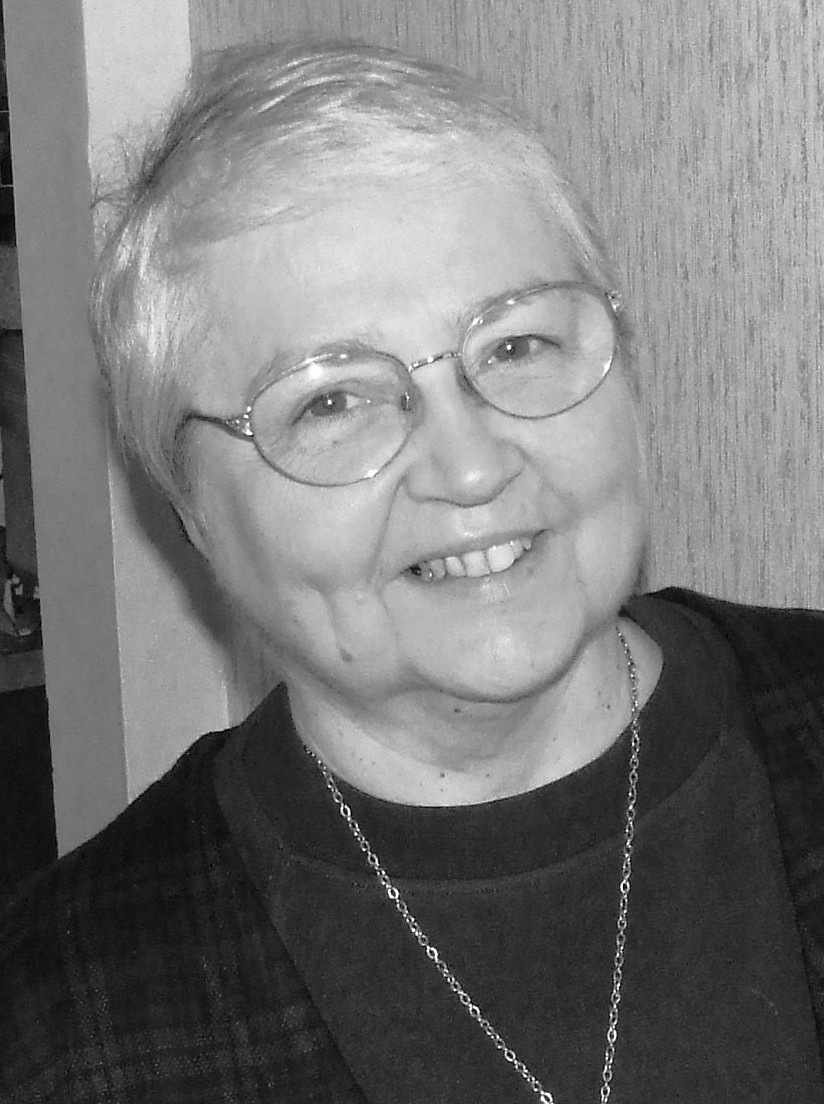
Wilda Morris
Born:
Connection to Illinois: Morris has called Bolingbrook home for over 45 years. She is a graduate of Northern Seminary in Lombard and University of Illinois at Urbana-Champaign. Biography: Wilda Morris, past president of both the Illinois State Poetry Society and Poets and Patrons of Chicago, has published hundreds of poems in anthologies, webzines, and print publications. She has won awards for formal and free verse and haiku. For almost 15 years, her poetry blog at wildamorris.blogspot.com featured a monthly poetry contest. She has led poetry workshops in several states.
Awards:
- 2019 Founders’ Award from the National Federation of State Poetry Societies
Facebook: https://www.facebook.com/wilda.morris.5
Twitter: https://twitter.com/wildamorrispoet
Selected Titles
 |
At Goat Hollow and Other Poems ISBN: 1639803386 OCLC: 1394952420 Kelsay Books 2023 Wilda Morris’ poems in At Goat Hollow and Other Poems are sentimental in the very best way, sharp-edged and clear. Morris shares all the reasons her Uncle Norman was beloved by children and looked down on by others in the family. In poem after poem, Morris braids memories of Goat Hollow together with the twin threads of family history and the specifics of place. One has to admire the dedication to commit an entire volume of poetry to the life of one man, but Morris proves equal to the task. As she explains, “With words, I draw snapshots/the Brownie cameras didn’t catch.”—Laura Hansen, Author of Midnight River, winner of the Stevens Manuscript Competition; Déjà Vu; and The Night Journey: Stories and PoemsIf Laura Ingalls Wilder’s classic YA novel Little House on the Prairie were a person, it would grow up to be a collection of poetry titled At Goat Hollow and Other Poems by Wilda Morris. This is a saga of our country’s Heartland, this is Americana at its charming best. Drawing on family snapshots, correspondence, memorabilia and her recollections, Wilda paints an authentic portrait of her pioneering forebears and contemporaries well planted in the loamy Iowa soil. Whether in pantoum, found poem or sonnet, Wilda invites us to delight in quirky Uncle Norman’s antics—and witness the staider family members cope with his originality—“the one adult who modeled/ breaking rules.” Wilda captivates us with story anddetail: “Time unravels when I see the old watering can,” she admits. We sit down to table with siblings and cousins to “eat the culture of Grandfather, too.” I could smell the sauerkraut! You, too, will experience a too-rare sensation in reading contemporary American poetry: Your heart will be warmed.—Karla Linn Merrifield, poet, and author of My Body the Guitar (Before Your Quiet Eyes Holograph Series), nominated for the 2022 National Book Award 2022Wilda Morris has portrayed the “salt of the earth” nature of her uncle, and of herself, too. I can imagine myself running through the countryside of mid-America following her and Uncle Norman. yet I can smell and taste the India of my childhood. That makes this collection universal.—Bakul Banerjee, author of Bathymetry: Poems, and Synchronicity: Poems |
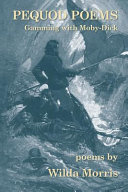 |
Pequod Poems: Gamming with Moby-Dick ISBN: 1949229602 OCLC: 1089811278 Kelsay Books 2019 One doesn’t have to be a literary scholar to deeply admire and enjoy Wilda Morris’s “Pequod Poems: Gamming with Moby Dick”—a brilliant compendium of literary insight, criticism, historical research, and especially her skillfully written poems. Among the many delights of the latter are reflections narrated by some of Melville’s most unforgettable characters—Ishmael, Queequeg, Starbuck, and Ahab himself, of course—as well as by members of Melville’s memorable supporting cast that includes Pip, Stubb, the Maltese sailor, and a salty host of others, along with confidences from Ahab’s and Starbuck’s distant wives. Morris also reveals her impressive mastery of poetic forms: the sonnet, the sestina, the rondeau, and—somewhat surprisingly, in this context—a wide range of newer, more obscure forms such as the Golden Shovel, the erasure poem, and the lipogram. Suffice to say that whether it’s erudition you’re seeking, or poetic virtuosity, or simply an imaginative retelling of a phenomenally good story, you’ll find yourself rewarded by taking a close look at Wilda Morris’s remarkable Pequod Poems. ~ Marilyn L. Taylor, Ph.D., Wisconsin Poet Laureate Emerita "Wilda Morris' Pequod Poems is a stunning and deeply imagined collection. Employing both traditional and invented forms, Morris creates a rich sonic and linguistic world in which Melville's characters explore their complex lives and reveal to us our own." ~Justen Ahren, Poet Laureate of Martha’s Vineyard and author of A Strange Catechism Whether or not you've read Moby-Dick, Wilda Morris's book is a wonderful companion. Like Melville's masterpiece, it is formally adventurous, deeply entertaining, both funny and philosophical--and redolent of the sea. I learned things about Moby-Dick, about language, and about the human condition from these fine poems ~ Will Hansen, Director of Reader Services and Curator of Americana and facilitator of adult education classes on Moby-Dick, Newberry Library, Chicago |
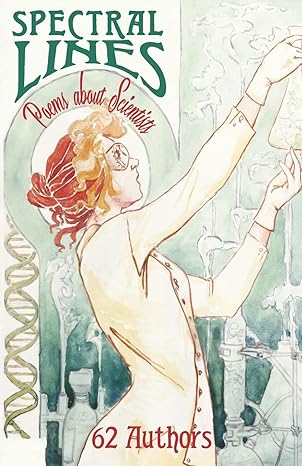 |
Spectral Lines: Poems about Scientists ISBN: 1946580082 OCLC: 1089812012 Alternating Current 2019 At the intersection of science and poetry, strange things happen. There exists such a bizarre human experience and shared understanding, that we can’t help but admire and celebrate it. It’s transcendent—the crossover of discovery and beauty. The physical solid realism and the ethereal intangible ideas. The inexplicable, the long-desired solutions, the struggle that comes in between. Exploring this intersection with 69 poems by 62 poets, this anthology is nothing if not transcendent in its own right. Each poem is written about an individual scientist, the fundamentals and atmosphere of each scientist—something humanistic that breathes life into his being, into her work, into their experiment. From microbiologist parents to role-model mentors to LGBT kinship with ostracized queerness to the women who’ve been written out of discoveries to the underdogs overlooked for Nobels, the pieces are searching and full of light, passionate and full of awe. |
 |
Stop the Violence!: Educating Ourselves to Protect Our Youth : Participant's Book ISBN: 0817013865 OCLC: 45087458 Judson Pr Valley Forge : 2001 Leaders Guide edition. A First Grader Killed by a Classmate in MT. Morris Township, Michigan. A five-year-old boy dropped from the fourteenth floor in Chicago. The tragedy at Columbine. How do we stop the violence? This curriculum is designed to help you reflect on issues of youth violence and to determine what actions you -- as a concerned adult -- can take to make a difference. Appropriate for small-group settings and any demographic group, this resource is the first step toward understanding the problems that confront today's youth. |


